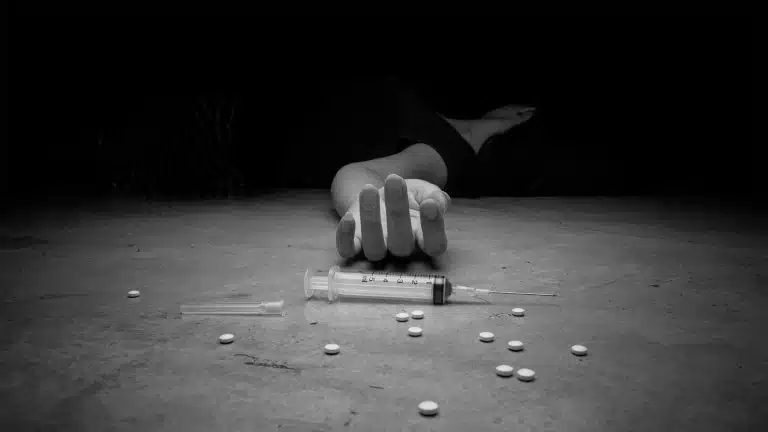100,000 Overdose Deaths | What We Can Do To Reverse The Trend

According to the Centers for Disease Control and Prevention (CDC), over 100,000 Americans died of drug overdoses between May 2020 and April 2021. This record-high overdose death rate tops last year’s rate (75,673) by 28.5%.
While this trend is alarming, it’s reversible. To help reverse it, you can learn what drugs are the most deadly and how to assist those who are overdosing or at risk of overdose.
What Drugs Caused The Most Overdose Deaths?
The reported overdose deaths involved a variety of drugs, including cocaine, methamphetamine, and alcohol.
However, as with previous years, opioids proved the most deadly. Over 75,000 of the 100,306 overdose deaths involved opioids, and over 64,000 involved synthetic opioids, particularly fentanyl.
Fentanyl is among the most powerful opioids in the world, being 50 times stronger than heroin and up to 100 times stronger than morphine.
Many drug dealers add it to other substances to cut production costs, as it’s very cheap. In most cases, they don’t tell the buyer they’ve added it. That means you could ingest fentanyl without even realizing it.
How To Decrease Overdose Deaths
Some people assume that only certain professionals, such as doctors and politicians, can reduce overdose deaths. However, no matter who you are or what you do, you can save lives by taking these steps:
Keep Naloxone On Hand
Naloxone (brand name Narcan) is a medication that can rapidly reverse an opioid overdose. It comes in two forms: an injectable form and a nasal spray. Both forms are available at most pharmacies without a prescription. You can also ask your doctor for the drug.
In addition, some communities have naloxone distribution programs that offer the drug for free. According to the National Institute on Drug Abuse, Massachusetts communities that have implemented such programs have seen an 11 percent decrease in opioid overdose deaths.
Even people who only use non-opioid drugs should always have naloxone on hand. That’s because, as mentioned above, many street drugs secretly contain fentanyl.
Know The Signs Of Overdose
Overdose signs can vary depending on the drug and person. However, some of the most common signs include:
- headache
- anxiety
- irritability
- sudden change in body temperature
- trouble breathing
- seizures
- loss of consciousness
A person experiencing an opioid overdose may show additional symptoms, including:
- limpness
- smaller pupils
- choking or gurgling sounds
- nausea and vomiting
- pale, bluish, or cold skin
- bluish fingernails or lips
- slowed or stopped breathing
- slowed or stopped heartbeat
If you think someone is overdosing, call 911 right away. As you wait for help to arrive, lay the person on their side so they don’t choke, and administer naloxone if you have it.
Use Fentanyl Testing Strips
The only way to avoid an overdose is to stop abusing drugs. In other words, you should only use medications as prescribed by a doctor, only use alcohol in moderation, and never use street drugs.
However, most people who abuse drugs need professional treatment, and some of them don’t feel ready for or have access to that treatment. If you’re in this situation, consider using fentanyl testing strips (FTS).
These strips can detect fentanyl in street drugs, including powders, pills, and injectable drugs. They’re available at harm reduction and needle exchange sites.
The strips aren’t always accurate, which means you could still accidentally ingest fentanyl. In addition, even if a drug doesn’t contain fentanyl, it can still cause an overdose. That’s why anyone who uses fentanyl testing strips should still work toward seeking treatment.
Fight Stigma
Many people avoid seeking treatment due to stigma. The word stigma refers to judgment and discrimination based on a personal characteristic, such as a disease.
Drug addiction is one of the most highly stigmatized diseases in the world. People who have it are often judged as weak, lazy, or selfish.
To avoid these judgments, a person may refuse to admit that they have an addiction and need treatment. The longer someone goes without treatment, the higher their risk of overdose.
If you hear someone describing addiction as a personal failure, explain that it’s actually a medical condition that requires ongoing support. You can also share your own experiences with addiction if you have any.
When you talk openly about the disease, you help decrease the shame that prevents so many people from seeking treatment.
Encourage Evidence-Based Treatment
Medication-assisted treatment (MAT) is likely the most effective option for treating opioid addiction. MAT programs are tailored to each patient and include a combination of medication and behavioral therapy.
As communities work to incorporate more accessible MAT programs, you can encourage loved ones to seek out this evidence-based option. MAT has been shown to reduce the risk of overdose, encourage completion of a rehab program, and provide the tools needed for a full recovery.
If you or someone you love struggles with substance abuse or addiction, please reach out to an Ark Behavioral Health specialist. Our treatment centers offer personalized, evidence-based care to help you achieve and maintain sobriety.
Written by Ark Behavioral Health Editorial Team
©2024 Ark National Holdings, LLC. | All Rights Reserved.
This page does not provide medical advice.
Centers for Disease Control and Prevention - Drug Overdose Deaths in the U.S. Top 100,000 Annually
National Institute on Drug Abuse - Addressing the Stigma that Surrounds Addiction
National Institute on Drug Abuse - Naloxone for Opioid Overdose: Life-Saving Science
Substance Abuse and Mental Health Services Administration (SAMHSA) - Medication-Assisted Treatment (MAT)
United States National Library of Medicine - Opioid Overdose

Questions About Treatment?
Ark Behavioral Health offers 100% confidential substance abuse assessment and treatment placement tailored to your individual needs. Achieve long-term recovery.
100% confidential. We respect your privacy.
Prefer Texting?
Our friendly support team is here to chat 24/7. Opt out any time.







 Learn More
Learn More








